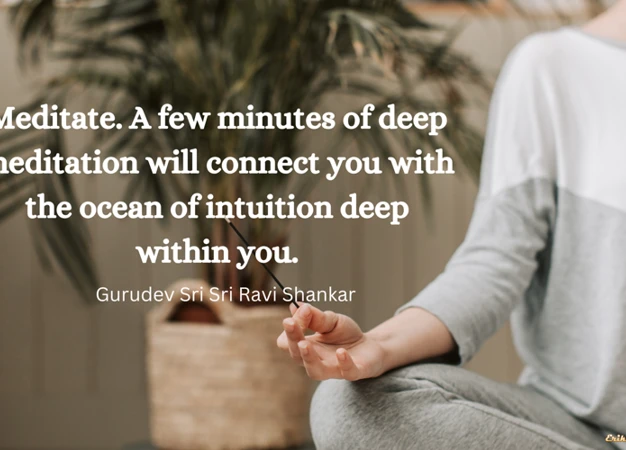It is often said that the answers we seek lie within ourselves. In our fast-paced and chaotic world, finding a sense of inner peace and tapping into our innate wisdom can be challenging. This is where the power of meditation comes in. Through the practice of stilling the mind and connecting with our inner self, meditation has the ability to cultivate a deeper sense of self-awareness and consciousness. In this article, we will explore the intriguing relationship between meditation and intuition – the innate ability to understand or know something without the need for conscious reasoning. We will delve into the definition of intuition, uncover the ways in which meditation enhances our intuitive abilities, and provide practical techniques to combine the two practices for a more connected and insightful life. So, let’s embark on this journey of self-discovery and unlock the extraordinary potential that lies within us.
Contents
- What is Meditation?
- Understanding Intuition
- The Relationship Between Meditation and Intuition
- Benefits of Meditative Practice for Intuition
- Techniques to Enhance Intuition Through Meditation
- Listening to Your Intuition
- Strengthening the Mind-Body Connection
- Practical Tips for Combining Meditation and Intuition
- Challenges and Solutions
- Personal Experiences and Testimonials
- Conclusion
-
Frequently Asked Questions
- What are the different types of meditation?
- Can meditation help improve intuition?
- How long should I meditate to experience the benefits?
- Is it necessary to sit in a specific position to meditate?
- Can meditation be combined with other spiritual practices?
- Can meditation be practiced by anyone?
- Can meditation help reduce stress and anxiety?
- Can meditation improve focus and concentration?
- What can I do if I find it difficult to quiet my mind during meditation?
- Are there any side effects of meditation?
- References
What is Meditation?
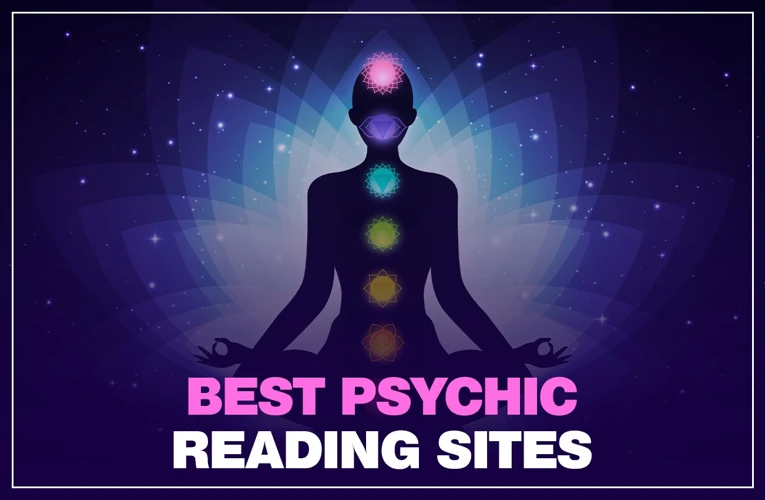
Meditation is a practice that has been used for centuries to cultivate a calm and focused mind. It involves training the mind to achieve a state of deep relaxation and heightened awareness. While there are various techniques and approaches to meditation, its essence lies in the ability to bring attention to the present moment and let go of distractions. It is often associated with sitting in a quiet space and focusing on the breath, but meditation can also be practiced while walking, standing, or engaging in other activities. The goal of meditation is not to empty the mind of thoughts, but rather to observe them without judgment and cultivate a sense of inner peace and stillness. This ancient practice has been scientifically proven to have numerous physical, mental, and emotional benefits, including stress reduction, improved concentration, and increased self-awareness. By regularly incorporating meditation into our lives, we can develop a greater sense of clarity, balance, and harmony within ourselves.
Understanding Intuition
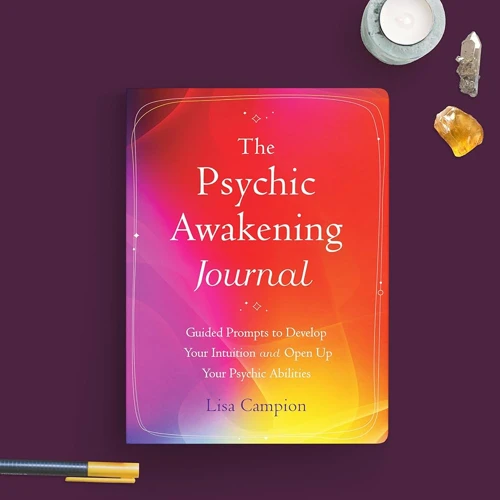
Intuition is a fascinating aspect of human consciousness that goes beyond logical reasoning and intellectual understanding. It is often described as a deep knowing or gut feeling that arises without conscious thought or external input. Intuition allows us to tap into our inner wisdom and make decisions that align with our true selves. There are different types of intuition, such as visceral intuition, empathic intuition, and cognitive intuition. Visceral intuition relates to physical sensations and bodily cues, while empathic intuition involves sensing and understanding the emotions and intentions of others. Cognitive intuition, on the other hand, is the ability to quickly access knowledge and insights without conscious awareness of how we obtained the information. Understanding and harnessing intuition can provide us with valuable guidance on our life’s path, helping us navigate through challenges and make choices that resonate with our authentic selves. By combining meditation with a regular practice, we can enhance our intuitive abilities and access deeper levels of awareness and clarity. (Source: visualization-meditation-intuition-enhancement)
Definition of Intuition
Intuition, often described as a “gut feeling” or a sense of knowing, is a natural and instinctual ability we all possess. It is a form of inner guidance that goes beyond logical reasoning and conscious thought processes. Intuition can be defined as the ability to understand or know something instinctively, without the need for conscious analysis or evidence. It is a deep inner wisdom that arises from the subconscious mind and can provide insights and guidance in various aspects of life. Intuition can manifest in different ways, such as a sudden knowing, a physical sensation, vivid dreams, or a hunch. It is often associated with a feeling of certainty and a deep trust in one’s inner knowing. While intuition is commonly associated with decision-making and problem-solving, it can also be a powerful tool for self-discovery, creativity, and spiritual growth. By honing our intuitive abilities, we can tap into a vast source of wisdom and guidance that can enhance our lives in profound ways. Incorporating practices like meditation, as explored in this article, can help us deepen our connection to our intuition and unlock its full potential.
Types of Intuition
When it comes to intuition, there are different types that people may experience. Gut instinct is one type of intuition that is often characterized by a strong and immediate feeling or inner knowing about a situation or decision. It is often described as a “gut feeling” because it is felt in the core of our being. Another type of intuition is clairvoyance, which involves the ability to receive information or insights through visual images or symbols that are not seen with the physical eyes. This type of intuition is often associated with psychic abilities. Intuitive knowing is another form of intuition where insights or knowledge seemingly come out of nowhere. It is a deep and profound sense of understanding without any logical or rational explanation. Some individuals may also experience empathic intuition, which is the ability to sense or feel the emotions, thoughts, or energies of others. This type of intuition allows individuals to pick up on subtle cues and understand the emotions and needs of those around them. Exploring and understanding these different types of intuition can provide valuable insights into our own intuitive abilities and how they can be enhanced through practices such as meditation or using mantras specifically designed for intuition enhancement.
The Relationship Between Meditation and Intuition
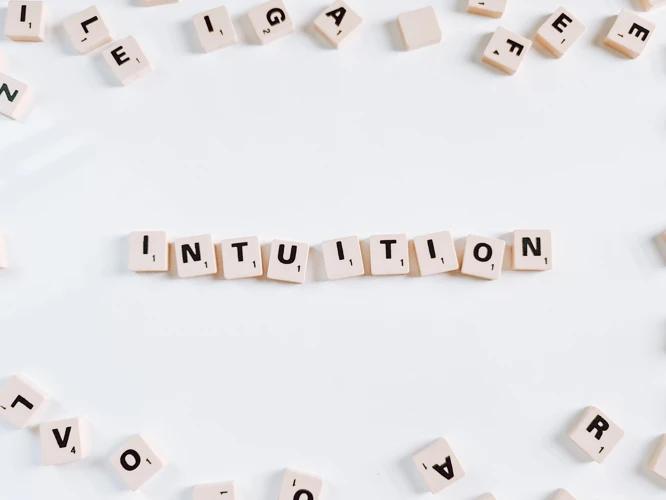
The relationship between meditation and intuition is a fascinating one. Intuition is our innate ability to understand or know something without conscious reasoning. It is often described as a gut feeling, a hunch, or a deep knowing. Meditation plays a crucial role in cultivating and strengthening our intuitive abilities. When we meditate, we quiet the mind and create a space for inner reflection and self-awareness. This state of stillness allows us to tap into our subconscious mind and access the intuitive wisdom that resides within us.
Meditation enhances our intuition by helping us develop a heightened sense of awareness and mindfulness. With regular practice, we become more in tune with our own thoughts, emotions, and physical sensations, which in turn deepens our connection to our intuitive guidance. Additionally, meditation helps to quiet the noise of the external world, enabling us to hear and trust the subtle whispers of our intuition.
By quieting the mind and cultivating inner stillness, meditation creates a fertile ground for our intuition to flourish. As a result, we become more attuned to our inner wisdom and gain clarity in decision-making, problem-solving, and navigating life’s challenges. The practice of meditation and the development of intuition go hand in hand, creating a harmonious relationship that can greatly enhance our overall well-being and personal growth.
Benefits of Meditative Practice for Intuition

The practice of meditation offers a multitude of benefits when it comes to enhancing our intuition. Through regular meditation, we can cultivate a heightened sense of awareness, which serves as the foundation for intuitive insights. By quieting the mind and allowing thoughts to arise and pass, we create space for intuitive messages to come through. With increased awareness and mindfulness, we become more attuned to our inner voice and inner knowing, allowing us to trust our intuition more fully. Additionally, meditation enhances our sensitivity, enabling us to pick up on subtle cues and energies that we may have otherwise overlooked. This heightened sensitivity extends beyond our immediate surroundings and can provide a deeper connection to the world around us. Meditation grants us access to our subconscious mind, where intuitive wisdom often resides. By exploring the depths of our consciousness, we can tap into a wellspring of intuitive insights and guidance. Ultimately, the combination of meditation and intuition can lead to a greater sense of clarity, wisdom, and alignment in our lives.
Enhanced Awareness and Mindfulness
Enhanced awareness and mindfulness are key benefits of incorporating meditation into one’s daily routine. Through regular practice, meditation cultivates a heightened sense of self-awareness and present moment awareness. This means becoming more attuned to our thoughts, emotions, and sensations as they arise, without judgment or attachment. By developing this state of mindfulness, we become more conscious of our thought patterns and behaviors, allowing us to make more intentional choices in our lives.
With enhanced awareness, we are able to observe our thoughts and emotions without getting caught up in them. This creates space for clarity and objectivity, enabling us to make decisions from a place of inner wisdom rather than reactive impulses. When it comes to intuition, this heightened awareness allows us to recognize intuitive insights as they arise. We become more attuned to the subtle signals and gut feelings that guide us towards making the right choices. This deepened state of awareness also helps us to become more present in our interactions with others, deepening our connections and empathy.
Mindfulness, which is a fundamental aspect of meditation, allows us to fully engage with the present moment and experience it with all our senses. This heightened level of presence enables us to access the full range of information that our intuition provides. By being fully present, we can better discern the intuitive messages that arise from within us and make decisions that align with our authentic selves. The practice of meditation strengthens our ability to stay present and focused, leading to a more connected and intuitive way of living.
Heightened Sensitivity
Heightened sensitivity is a remarkable effect of meditative practice on our intuitive abilities. Through meditation, we learn to quiet the mind and cultivate a heightened state of awareness. This increased awareness extends to our emotions, thoughts, and physical sensations. When we meditate, we become more attuned to the subtle shifts and nuances happening within and around us. This heightened sensitivity allows us to pick up on subtle cues and vibrations that we may have previously overlooked. We become more in tune with our own feelings and intuition, as well as the energy in our environment.
One way to understand this heightened sensitivity is through the analogy of a radio. When the radio frequency is tuned just right, we can pick up clear signals from different stations. Similarly, when we cultivate a state of heightened sensitivity through meditation, we become more receptive to the signals from our intuition. We become attuned to the whispers of our inner guidance, enabling us to make more aligned and intuitive decisions.
This heightened sensitivity can also extend to our interactions with others. As we become more aware of our own emotions and energy, we are better able to empathize with and understand the feelings of those around us. This increased empathy leads to more meaningful connections and relationships.
Heightened sensitivity is a natural and beneficial outcome of regular meditation practice. By tuning in to our inner wisdom and becoming more attuned to our environment, we can harness the power of our intuition and navigate life with greater clarity and insight.
Access to Subconscious Mind
Access to the subconscious mind is an intriguing aspect of the relationship between meditation and intuition. The subconscious mind is the part of our consciousness that operates below the surface of our awareness. It holds a wealth of information, memories, and intuitive insights that are often inaccessible to our conscious mind. Through meditation, we can tap into this vast reservoir of knowledge and wisdom. When we enter a meditative state, our brain waves slow down, and we become more receptive to the subtle messages and intuitive nudges that arise from our subconscious. This allows us to access deeper layers of our intuition, where profound insights and solutions to problems may reside. In this state, we may receive images, symbols, or intuitive feelings that can guide us in making important decisions or finding creative solutions. By regularly practicing meditation, we can strengthen the connection to our subconscious mind and unlock the valuable intuitive guidance that resides within us. It is through this connection that we can gain a deeper understanding of ourselves and the world around us.
Techniques to Enhance Intuition Through Meditation
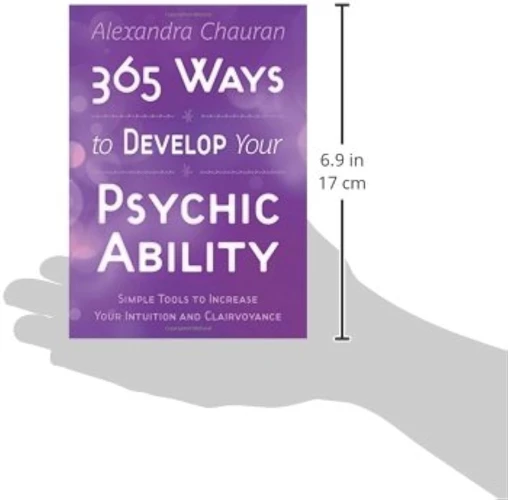
Meditation offers a pathway to enhance our intuitive abilities and tap into our inner wisdom. There are various techniques within meditation that can specifically target and strengthen our intuition. One such technique is focused meditation, where we concentrate our attention on a specific object, sound, or sensation. This helps to quiet the mind and enhances our ability to access our intuitive insights. Another technique is visualization exercises, where we use our imagination to create vivid mental images that align with our desires or intentions. This practice helps to activate our intuitive faculties and open us up to receiving intuitive guidance. Additionally, body scan meditation is a technique where we systematically bring our awareness to different parts of the body, allowing us to become more attuned to the physical sensations and intuitive signals that arise. By incorporating these techniques into our meditation practice, we can deepen our connection to our intuition and access the valuable insights it offers.
Focused Meditation
Focused meditation, also known as concentration meditation, is a technique that involves directing and sustaining attention on a single object or focal point. The purpose of this form of meditation is to quiet the mind and deepen concentration. One common method is to focus on the sensation of the breath, following its natural rhythm and feeling the sensation of each inhale and exhale. This helps to anchor the mind in the present moment and prevent wandering thoughts. Alternatively, you can choose a different object of focus, such as a candle flame, a mantra, or a specific image. By continuously redirecting your attention back to the chosen point of focus whenever the mind wanders, you cultivate mental discipline and strengthen your ability to sustain concentration. This type of meditation not only sharpens your focus during the practice itself but also carries over into everyday life, improving your ability to stay present and engaged in tasks. Focused meditation can be a valuable tool for enhancing intuition as it helps to quiet the chatter of the mind and create a receptive state for intuitive insights to emerge. Plus, it helps cultivate a greater sense of mental clarity and calmness, allowing you to tap into your innate wisdom. Whether you are a beginner or an experienced meditator, incorporating focused meditation into your daily routine can be a powerful way to enhance your intuitive abilities and deepen your overall meditation practice.
Visualization Exercises
Visualization exercises are a powerful tool that can be used in meditation to enhance intuition. Visualization involves creating vivid mental images in our minds, harnessing the power of our imagination to tap into our intuitive abilities. By visualizing specific scenes, objects, or scenarios, we can access deeper levels of consciousness and gain insights that may not be readily available to us in our everyday waking state.
During a meditation session, begin by finding a quiet and comfortable space where you can relax and focus. Close your eyes and take several deep breaths to center yourself. Once you feel calm and grounded, you can begin the visualization exercise.
Choose a specific intention or question that you would like to explore through your intuition. It could be related to a personal situation, a decision you need to make, or simply a desire for guidance and clarity.
Now, visualize yourself in a calming and peaceful environment, such as a serene garden or a beautiful natural landscape. Engage your senses and imagine the sights, sounds, smells, and textures of this environment.
Next, bring your attention to your intention or question. Visualize it as a symbol or an image, and hold it in your mind’s eye. See it clearly and vividly, allowing yourself to explore any emotions or sensations that arise.
As you continue to visualize, pay attention to any intuitive insights or messages that come to you. These may appear as images, words, or feelings. Trust your instincts and allow your intuition to guide you.
After the visualization exercise, take a few moments to reflect on what you experienced. Write down any insights or messages that came through, as well as any feelings or sensations that you noticed. This can help solidify the intuitive information and provide a reference for future reflection and understanding.
Visualization exercises can be a valuable practice to deepen your connection with your intuition. By regularly engaging in these exercises, you can develop your ability to access intuitive wisdom and make decisions aligned with your inner knowing. So, take some time to explore the power of visualization in your meditation practice and unlock the incredible insights that await you.
Body Scan Meditation
Body Scan Meditation is a powerful technique that involves bringing focused attention and awareness to different parts of the body. It is commonly used as a mindfulness practice to develop a deeper connection between the mind and body. During a body scan meditation, one starts by finding a quiet and comfortable space to sit or lie down. With eyes closed, the individual methodically scans their body from head to toe, paying close attention to any sensations, tensions, or areas of discomfort that arise. This practice encourages a non-judgmental awareness of bodily sensations and promotes a sense of deep relaxation. Additionally, body scan meditation can help in identifying and releasing areas of tension and stress, as well as fostering a greater sense of body awareness and self-compassion. By cultivating this mind-body connection through regular practice, individuals can enhance their ability to listen to and trust their intuition. Body scan meditation is a valuable tool to integrate into a meditation routine for those seeking to deepen their intuitive abilities and embrace a more holistic approach to self-care.
Listening to Your Intuition
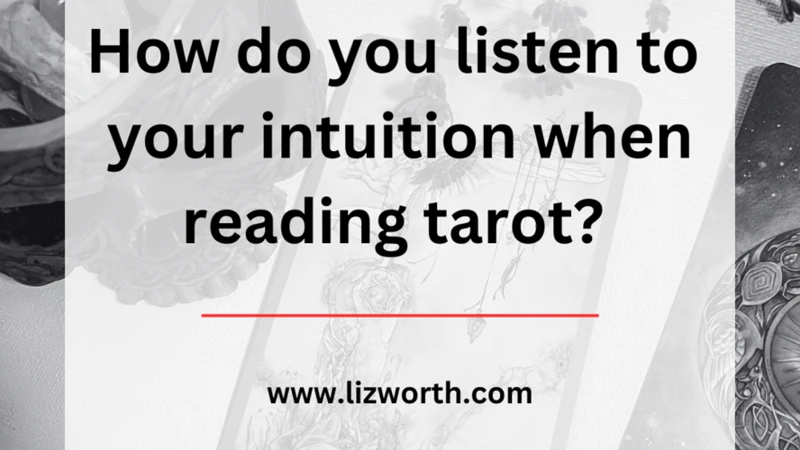
Listening to your intuition is a powerful practice that can guide you towards making decisions aligned with your true self. It involves attuning to the subtle signals and inner wisdom that arise from within. Recognizing intuitive insights can often feel like a gut feeling or a sense of knowing that surpasses rational reasoning. By paying attention to these intuitive whispers, we can navigate through life with more clarity and purpose. Trusting your intuition requires letting go of doubt and fear, and instead, embracing the innate wisdom that resides within you. It is essential to listen to your intuition without judgment or overthinking, as it may provide guidance and direction that logic alone cannot comprehend. By honing this skill of active listening, you can tap into your intuition in various aspects of life, from relationships and career choices to everyday decisions. Trusting your intuition is a profound way to cultivate self-trust and live a more authentic and fulfilling life.
Recognizing Intuitive Insights
Recognizing intuitive insights is a key aspect of harnessing the power of intuition. Intuition often communicates with us through subtle messages, feelings, or whispers from within. To effectively recognize these insights, it is important to cultivate a state of heightened awareness and receptivity. Here are some strategies to help you recognize and acknowledge your intuitive insights:
1. Pay attention to your body sensations: Notice any physical sensations or feelings that arise when you are contemplating a decision or situation. Your body holds valuable wisdom, so pay attention to any tightness, tingling, or lightness you may experience. Trusting these bodily cues can guide you toward intuitive insights.
2. Listen to your gut feelings: Your gut, often referred to as the “second brain,” has a way of signaling us when something feels right or wrong. Pay attention to any subtle nudges or feelings in your gut area. These feelings can provide valuable information and guide you in making intuitive decisions.
3. Be aware of synchronicities: Synchronicities are meaningful coincidences that occur in our lives. They can serve as powerful signs and symbols from the universe. Stay open and aware of these synchronicities, as they may hold important messages and guidance for you.
4. Trust your initial impressions: Intuitive insights often come in the form of initial impressions or hunches. Avoid dismissing these impressions and instead give them the attention they deserve. These initial thoughts or feelings can provide valuable insights and guide your decision-making process.
5. Journal your experiences: Keep a journal to record your intuitive experiences and insights. Writing them down can help you recognize patterns, strengthen your intuitive abilities, and gain clarity on the messages you’re receiving.
Remember, recognizing intuitive insights requires practice and trust. By developing a deep sense of self-awareness and a willingness to listen to your inner wisdom, you can become more attuned to your intuitive guidance and make decisions that align with your highest good. Trust yourself and embrace the power of your intuition.
Trusting Your Intuition
Trusting your intuition is a crucial aspect of harnessing its power and benefiting from its guidance. It involves having confidence in your inner knowing and being willing to follow it, even when it goes against logical reasoning or societal expectations. Here are a few tips to help you cultivate trust in your intuition:
1. Reflect on past experiences: Take a moment to recall instances where you followed your intuition and it led to positive outcomes. Remember times when you ignored your intuition and regretted it. Reflecting on these experiences can build confidence in the accuracy of your intuition.
2. Quiet the mind: Engage in practices like meditation or deep breathing to quiet the constant chatter of the mind. Inner stillness allows your intuition to surface more clearly and be heard.
3. Pay attention to your body: Notice physical sensations that arise when faced with a decision or situation. Your body often responds intuitively before the mind can catch up. Trust the messages your body is sending you.
4. Practice detachment: Detach from the outcome and any preconceived expectations. Trust that your intuition will guide you to the best outcome, even if it may not seem logical in the present moment.
5. Take small steps: Start by trusting your intuition in small, low-risk situations. As you observe positive outcomes, your confidence in your intuition will grow, enabling you to trust it in more significant decisions.
Remember that trusting your intuition is a personal journey. It requires practice, patience, and self-belief. When you trust your intuition, you tap into a wellspring of inner wisdom and guidance that can lead to a more fulfilling and authentic life. So, embrace your intuition, listen to its whispers, and have faith in the profound insights it can provide.
Strengthening the Mind-Body Connection
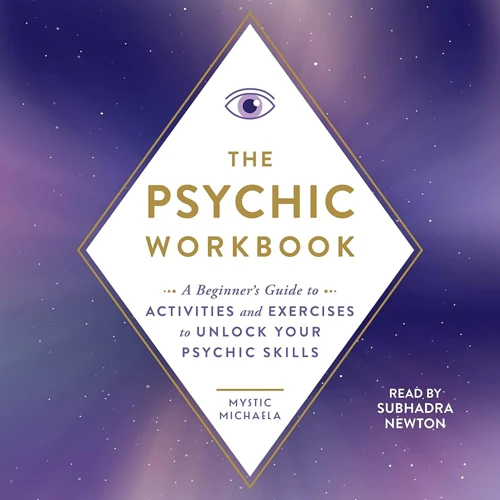
Strengthening the mind-body connection is a crucial aspect of both meditation and intuition. When we align our mental and physical states, we can tap into a deeper level of awareness and understanding. One technique to enhance this connection is through chakra balancing, which involves clearing and aligning the energy centers in our bodies. By focusing on these seven chakras, we can promote a balanced flow of energy, leading to improved well-being and intuition. Another way to strengthen the mind-body connection is by practicing mindfulness in daily life. This involves bringing our full attention to the present moment, whether it’s during routine activities like eating or brushing our teeth. By being fully present in these moments, we can cultivate a deeper sense of connection and enhance our intuitive abilities. When we prioritize the integration of our mind and body, we can experience a greater sense of harmony and alignment within ourselves, ultimately supporting our journey towards enhanced intuition.
Chakra Balancing
Chakra balancing is a technique rooted in the belief that there are seven main energy centers, or chakras, located along the spine. These chakras are associated with different aspects of our physical, emotional, and spiritual well-being. When these chakras are in balance, energy flows freely, promoting overall health and vitality. However, if a chakra becomes blocked or imbalanced, it can lead to physical or emotional discomfort. Chakra balancing through meditation involves focusing on each chakra individually and visualizing it being cleansed and energized. This can be done by picturing the chakra as a spinning wheel of light or by using specific affirmations and mantras associated with each chakra. By practicing chakra balancing meditations, we can remove blockages in our energy system, promote healing, and restore balance to our body and mind. Each chakra has its own unique qualities and characteristics, influencing different aspects of our lives. From the root chakra, which is associated with stability and grounding, to the crown chakra, which is linked to spiritual connection and enlightenment, chakra balancing can help us tap into the full potential of our energy centers and enhance our overall well-being.
Mindfulness in Daily Life
Mindfulness is not just limited to our meditation sessions; it is a way of being that can be integrated into our daily lives. Mindfulness in daily life refers to the practice of bringing our full attention and awareness to each moment, whether we are engaged in routine activities or facing challenges. It involves cultivating a non-judgmental and accepting attitude towards our thoughts, emotions, and experiences. By practicing mindfulness in our daily lives, we can develop a deeper connection with ourselves and the world around us.
One way to incorporate mindfulness into our daily routine is by paying attention to our senses. This can be as simple as fully experiencing the taste of the food we eat, feeling the texture of objects we touch, or listening intently to the sounds around us. By being fully present and engaged in each moment, we can savor the small joys and appreciate the beauty in the ordinary.
Another aspect of mindfulness in daily life is bringing awareness to our actions and behaviors. This means being fully present and engaged in whatever we are doing, whether it is washing dishes, taking a walk, or having a conversation. By focusing on the task at hand, we can bring a sense of purpose and intention to our actions, enhancing our overall experience and fostering a greater connection with ourselves and others.
Mindfulness in daily life also involves being aware of our thoughts and emotions without getting caught up in them. By practicing non-reactivity, we can observe our thoughts and emotions as they arise, without judgment or attachment. This allows us to cultivate a sense of inner calm and freedom from the grip of negative thoughts or emotions.
Incorporating mindfulness into our daily lives allows us to bring a sense of presence, acceptance, and non-judgment to each moment. By doing so, we can experience a greater sense of peace, clarity, and connection with ourselves and the world around us. So, let us embrace mindfulness as a way of life and discover the profound impact it can have on our well-being and intuitive abilities.
Practical Tips for Combining Meditation and Intuition
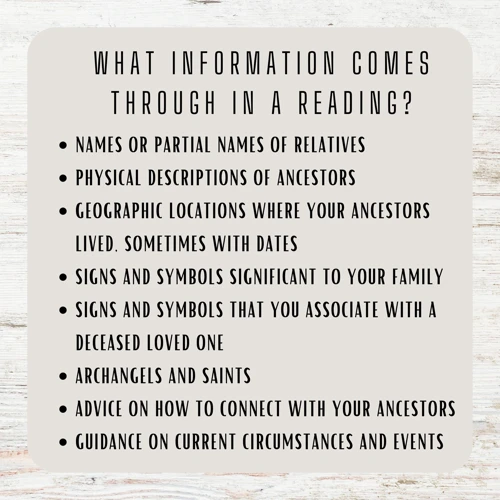
Combining meditation and intuition can be a powerful practice for enhancing self-awareness and tapping into our inner wisdom. Here are some practical tips to help you incorporate both practices into your daily life. Firstly, setting an intention before each meditation session can be beneficial. By clearly stating what you want to cultivate or explore, you can align your meditation practice with your intuition. Creating a sacred space can also enhance the connection between meditation and intuition. Find a quiet and peaceful area where you can meditate without distractions. This space can be adorned with objects that hold personal significance or symbols of your spiritual beliefs. Another helpful tip is to use affirmations during your meditation. These positive statements can help program your subconscious mind and align your intentions with your intuitive insights. By incorporating these practical tips into your meditation practice, you can enhance the connection with your intuition and open up a gateway to a deeper understanding of yourself and the world around you.
Setting an Intention
Setting an intention is a powerful practice that can enhance the connection between meditation and intuition. When we set an intention before beginning our meditation session, we are consciously directing our focus and energy towards a specific purpose. This can be as simple as intending to cultivate inner peace, or it can be more specific, such as intending to receive clarity and guidance from our intuition. By setting an intention, we are essentially programming our subconscious mind to work towards that goal during our meditation. This intention acts as a guiding principle throughout our practice and helps to align our thoughts, feelings, and actions with our desired outcome. It is important to set intentions that resonate with our true desires and values. By focusing on our intention, we create a clear pathway for our intuition to communicate with us during the meditation. This practice of setting an intention can deepen our meditation experience and allow us to tap into the intuitive wisdom that lies within us. Whether our intention is to gain insights, find solutions to specific challenges, or simply to connect with our intuition on a deeper level, setting an intention before each meditation session can greatly enhance the effectiveness of our practice.
Creating a Sacred Space
Creating a sacred space is a powerful way to enhance our meditation practice and deepen our connection with intuition. A sacred space can be any physical location or area that is dedicated to our spiritual growth and inner exploration. It is a space where we can feel safe, protected, and connected to something greater than ourselves. To create a sacred space, it is important to choose a location that resonates with us and evokes a sense of peace and tranquility. This could be a corner of a room, a quiet garden, or a designated meditation area. Once the space is chosen, we can begin to personalize and make it sacred in our own unique way. This can be done by adding items such as candles, incense, crystals, meaningful objects, or symbols that hold spiritual significance for us. These items can help create a sacred atmosphere by invoking a sense of reverence, mindfulness, and sacredness. Additionally, it is important to keep the space clean and clutter-free, as this promotes a sense of clarity and openness. By creating a dedicated and sacred space for our meditation practice, we are setting the intention to invite stillness, spiritual connection, and a deeper exploration of our intuition into our lives. It becomes a sacred sanctuary that supports and nourishes our journey towards inner wisdom and self-discovery.
Using Affirmations
Using affirmations can be a powerful tool in enhancing our intuition through meditation. Affirmations are positive statements that we repeat to ourselves in order to reinforce positive beliefs and thoughts. When it comes to intuition, affirmations can help us strengthen our trust in our inner guidance and deepen our connection to our intuition. Here are some ways we can incorporate affirmations into our meditation practice:
1. Create Personalized Affirmations: Identify areas in your life where you would like to enhance your intuition, such as decision-making or creativity. Craft affirmations that resonate with you personally, such as “I trust my intuition to guide me in making the best choices” or “My intuition is a reliable source of wisdom and clarity.”
2. Repeat Affirmations During Meditation: Find a comfortable position to meditate and silently or aloud repeat your affirmations. Focus on the meaning and feeling behind each affirmation, allowing them to penetrate your subconscious mind and reinforce positive beliefs about your intuition.
3. Combine Affirmations with Visualization: As you repeat your affirmations, visualize yourself embodying the qualities of a strong intuitive person. Picture yourself making intuitive decisions with ease and confidence, and imagine the positive outcomes that can result from trusting your intuition.
4. Integrate Affirmations into Daily Life: Carry your affirmations with you throughout the day by writing them on sticky notes or setting them as reminders on your phone. Repeat them regularly to reinforce your belief in the power of your intuition.
Remember, the key to using affirmations effectively is consistency and belief. By incorporating positive affirmations into our meditation practice, we can reprogram our minds to strengthen our intuitive abilities and develop a deeper trust in our inner wisdom.
Challenges and Solutions

Just like any practice, incorporating meditation and intuition into our lives can come with its fair share of challenges. However, with awareness and perseverance, these challenges can be overcome. Here are some common challenges that individuals may face when integrating meditation and intuition, along with potential solutions:
1. Restless Mind: One of the biggest challenges during meditation is a restless mind. Thoughts can constantly arise, making it difficult to achieve a state of stillness. To overcome this challenge, it is important to recognize that it is perfectly normal for thoughts to appear during meditation. Instead of fighting them or getting frustrated, acknowledge them without judgment and gently bring your focus back to your meditation object, such as the breath or a mantra. Over time, with consistent practice, the mind will become more calm and focused.
2. Doubting Intuitive Insights: Another challenge can arise when we doubt the validity of our intuitive insights. It is common to question whether these insights are real or just our imagination. The solution is to cultivate trust and faith in your intuition. Pay attention to instances when your intuition has proven to be accurate in the past. Keep a journal and record your intuitive experiences, noting the outcomes or validations that follow. This will help build confidence and belief in your intuitive abilities.
3. Lack of Discipline: Consistency is key when it comes to meditation and intuition. Starting a regular meditation practice and listening to your intuition requires discipline and commitment. The solution is to create a schedule and set aside dedicated time for practice. Start with shorter sessions and gradually increase the duration as your practice deepens. Find a meditation technique that resonates with you and stick to it. Surround yourself with supportive environments and like-minded individuals to keep you motivated and accountable.
4. Overwhelm: In today’s fast-paced world, it is easy to feel overwhelmed and disconnected from our intuition. The constant noise and distractions can make it challenging to listen to our inner guidance. The solution is to create moments of stillness and silence throughout the day. Incorporate mini-meditation breaks into your routine, even if it’s just a few minutes of deep breathing or mindful walking. Disconnect from technology and spend time in nature to recharge and reestablish a sense of inner calm.
It is important to remember that everyone’s meditation and intuition journey is unique. Be patient with yourself and embrace the process. With time, dedication, and a willingness to overcome challenges, meditation and intuition can be powerful tools for personal growth and self-discovery.
Personal Experiences and Testimonials
Personal experiences and testimonials provide valuable insights into the connection between meditation and intuition. Many individuals who have incorporated regular meditation practice into their lives have reported profound shifts in their intuitive abilities. These experiences often include heightened senses, increased clarity of thought, and a deeper connection to their inner guidance. One individual shared how their daily meditation practice allowed them to access intuitive insights that guided them towards making important life decisions. Another person mentioned how meditation helped them trust their intuition more fully, allowing them to make choices that aligned with their true desires and goals. These personal stories highlight the transformative power that meditation can have on our intuitive capacities. Additionally, scientific studies have shown that meditation can lead to physical changes in the brain, such as increased gray matter in regions associated with intuition and self-awareness. While it’s important to remember that personal experiences may vary, these testimonials offer inspiring anecdotes that demonstrate the potential benefits of combining meditation and intuition in our lives.
Conclusion
In conclusion, the practice of meditation offers a powerful tool for enhancing our intuition and deepening our connection with ourselves. Through meditation, we can cultivate a heightened sense of awareness and mindfulness, allowing us to tap into our intuitive abilities more effectively. By quieting the mind and accessing our subconscious, we can receive insights and guidance that go beyond the limitations of logical thinking. The benefits of meditation for intuition are numerous, including enhanced awareness, heightened sensitivity, and access to the wisdom of our subconscious mind. Furthermore, techniques such as focused meditation, visualization exercises, and body scan meditation can help us strengthen our intuitive abilities. It is important to listen to our intuition, recognize the intuitive insights we receive, and trust in them. Strengthening the mind-body connection through practices like chakra balancing and mindfulness in daily life can also enhance our intuitive abilities. By setting intentions, creating sacred spaces, and using affirmations, we can further align ourselves with our intuition during meditation. While there might be challenges along the way, such as a busy mind or doubts in our intuition, these can be overcome with patience and practice. Ultimately, the combination of meditation and intuition can lead to a more fulfilling and insightful life. So, embrace the practice of meditation, listen to your intuition, and unlock the extraordinary wisdom that lies within you.
Frequently Asked Questions
What are the different types of meditation?
There are various types of meditation, including mindful meditation, transcendental meditation, loving-kindness meditation, and visualization meditation. Each type has its own unique approach and focuses on different aspects of the mind and body.
Can meditation help improve intuition?
Yes, meditation can enhance intuition by quieting the mind and allowing us to access our inner wisdom. Through regular practice, meditation cultivates self-awareness and strengthens the connection to our intuitive insights.
How long should I meditate to experience the benefits?
The duration of meditation varies from person to person. Beginners may start with just 5-10 minutes a day and gradually increase the time as they become more comfortable. It is more important to establish a consistent practice than to focus on the duration.
Is it necessary to sit in a specific position to meditate?
No, meditation can be practiced in various positions such as sitting on a chair, cross-legged on the floor, or even lying down. The key is to find a position that is comfortable and allows you to maintain focus and alertness.
Can meditation be combined with other spiritual practices?
Absolutely! Meditation can complement and enhance other spiritual practices such as yoga, chanting, and affirmations. It can help deepen your spiritual connection and foster a greater sense of inner peace and clarity.
Can meditation be practiced by anyone?
Yes, meditation is a practice that can be embraced by anyone, regardless of age, gender, or religious beliefs. It is a universal technique that can benefit individuals from all walks of life.
Can meditation help reduce stress and anxiety?
Yes, meditation is known for its ability to reduce stress and anxiety. By calming the mind and relaxing the body, meditation helps to lower cortisol levels, improve emotional well-being, and promote a state of relaxation and tranquility.
Can meditation improve focus and concentration?
Absolutely! Regular meditation practice enhances focus and concentration by training the mind to stay present and resist distractions. It improves cognitive function and allows for greater clarity and mental clarity.
What can I do if I find it difficult to quiet my mind during meditation?
It is common to experience wandering thoughts during meditation. Instead of fighting or suppressing them, simply observe them without judgment and gently bring your attention back to your breath or chosen focal point. With time and practice, the mind will become more still and focused.
Are there any side effects of meditation?
Meditation is generally safe and has no known harmful side effects. However, some individuals may experience emotional releases or feelings of discomfort as buried emotions come to the surface. It is important to approach meditation with self-compassion and seek guidance if necessary.

